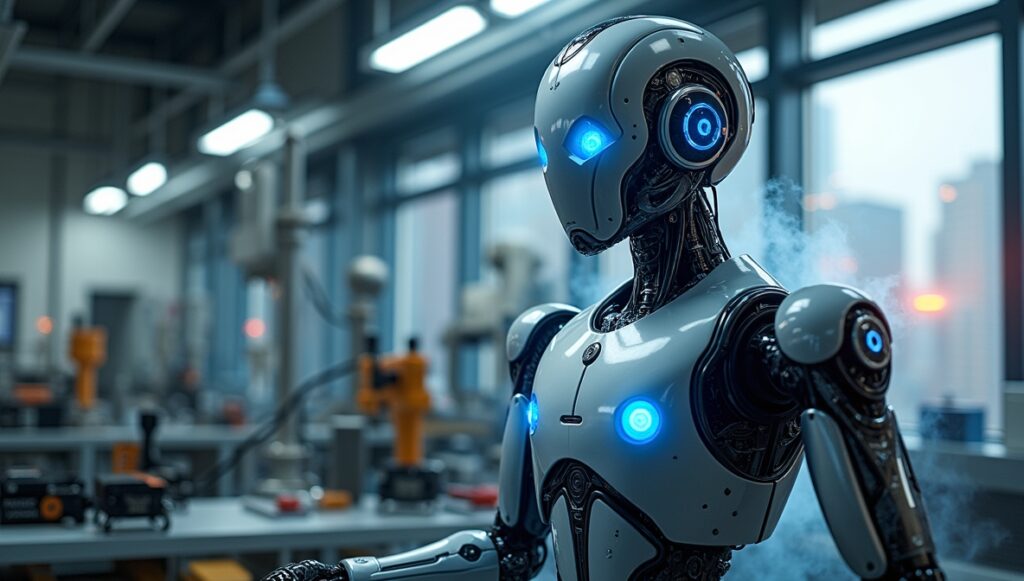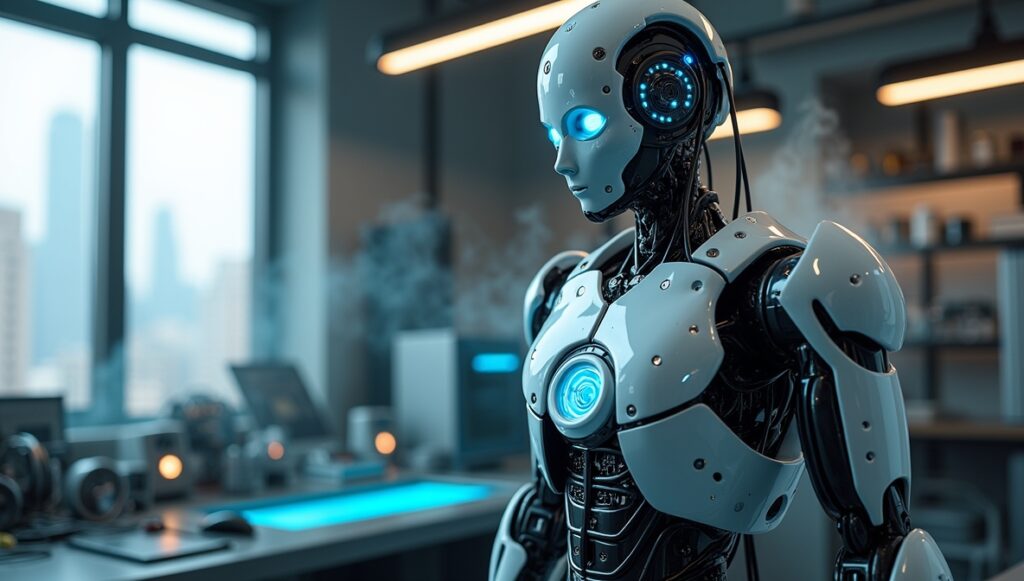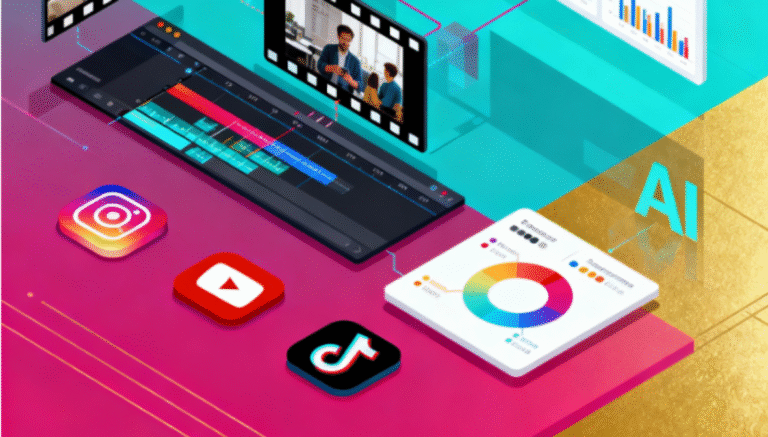#beaconsoft latest tech innovations shaping the digital future
lntroduction
#beaconsoft latest tech stands at the forefront of a rapidly evolving digital landscape where innovation, automation, and intelligent systems define the path ahead. As we navigate this era of transformation, the intersection of human creativity and machine intelligence is shaping industries in ways that were once unimaginable. From artificial intelligence to sustainable computing, the progress made in technology today is rewriting the very rules of modern civilization.
The pace at which technology evolves has created an interconnected world, bridging gaps between economies, cultures, and knowledge systems. With emerging platforms reshaping industries from healthcare to finance, it has become essential to understand how these developments drive both opportunities and challenges for the future workforce and society at large.
Understanding the Global Shift Toward Digital Intelligence
The rise of intelligent computing systems and automation has ushered in a new era of efficiency. At the center of this transformation, #beaconsoft latest tech reflects the integration of advanced digital tools designed to enhance decision-making and streamline global operations.
Digital intelligence refers to the combination of data analytics, machine learning, and predictive modeling that enables businesses and individuals to make smarter decisions. Unlike traditional computing, these technologies learn and www beaconsoft .net adapt, leading to dynamic responses based on real-time information. This adaptability is crucial for industries aiming to maintain competitiveness in a constantly shifting global market.
The Power of Artificial Intelligence and Machine Learning
Artificial intelligence (AI) has transitioned from being a futuristic concept to a mainstream technological reality. Modern AI applications range from conversational assistants to complex predictive algorithms that forecast market behavior and optimize energy consumption. Through #beaconsoft latest tech, innovations in AI continue to evolve, bridging the gap between human reasoning and computational accuracy.
Machine learning, a subset of AI, focuses on the ability of systems to learn from experience without explicit programming. It powers recommendation engines, fraud detection systems, and healthcare diagnostics. Businesses now rely on these tools to process massive datasets, transforming raw information into actionable insights. The more data these systems process, the more precise and intelligent they become, ultimately redefining efficiency across sectors.
The Rise of Cloud Computing and Data Ecosystems
Cloud computing has become the foundation of digital transformation, offering scalable resources and on-demand computing power. What makes it indispensable is its ability to democratize access to powerful technologies, allowing even small enterprises to compete globally.
Through #beaconsoft latest tech, cloud infrastructure has expanded its reach, enabling cross-border collaboration, data storage, and application development. Companies are no longer limited by hardware or geographical constraints. Instead, they operate within vast digital ecosystems where innovation thrives through connectivity and shared knowledge.
Data, often called the “new oil,” drives this transformation. The ability to collect, analyze, and act on massive volumes of information is reshaping decision-making across industries. Cloud-based data systems support this process by offering secure, scalable platforms that adapt to growing demands.
Cybersecurity: Protecting the Digital Frontier

With great innovation comes increased vulnerability. The rise of interconnected systems has given cybercriminals unprecedented access to sensitive data and critical infrastructure. This has made cybersecurity one of the most important fields in modern technology.
#beaconsoft latest tech emphasizes the importance of integrating proactive security measures directly into software and hardware solutions. Traditional security models are being replaced by adaptive frameworks that anticipate and neutralize threats before they can cause damage. Artificial intelligence now plays a vital role in cybersecurity, detecting patterns that indicate breaches and learning to respond faster than human analysts.
The concept of “zero trust” architecture has gained popularity, enforcing the principle that no device or user should be automatically trusted. This approach minimizes the risk of unauthorized access, creating a layered defense mechanism that aligns with modern digital practices.
The Internet of Things: Connecting the Physical and Digital Worlds
The Internet of Things (IoT) refers to the network of physical devices embedded with sensors, software, and other technologies to collect and exchange data. From smart homes to industrial automation, IoT is transforming everyday life and business operations.
Through #beaconsoft latest tech, IoT devices are becoming more intelligent, secure, and efficient. These connected systems allow real-time communication between machines and people, optimizing processes in manufacturing, agriculture, healthcare, and urban infrastructure. For instance, smart cities now use IoT-enabled traffic systems to manage congestion, reduce pollution, and enhance safety.
The challenge, however, lies in managing and securing the vast amounts of data generated by these interconnected devices. As IoT continues to expand, it requires robust data governance frameworks and security protocols to ensure reliability and privacy.
Blockchain Technology and the Future of Trust
Blockchain, the technology behind cryptocurrencies, has evolved into a revolutionary tool for enhancing transparency and trust in digital interactions. Its decentralized nature eliminates the need for intermediaries, providing secure and immutable transaction records.
#beaconsoft latest tech explores how blockchain is being adopted beyond finance, influencing industries such as supply chain management, healthcare, and digital identity verification. By offering a tamper-proof method of recording information, blockchain ensures data integrity and builds trust among participants.
In the near future, blockchain could underpin digital governance systems, transforming how elections, public records, and certifications are managed. Its ability to decentralize power structures could redefine how societies organize and distribute authority in a digital age.
Green Technology and the Push for Sustainability
The growing concern for environmental preservation has led to a surge in green technologies. These innovations aim to reduce carbon emissions, optimize energy consumption, and promote sustainable business practices.
At the heart of this movement, #beaconsoft latest tech supports the integration of AI and IoT into renewable energy systems. Smart grids, for example, balance electricity supply and demand in real-time, while predictive algorithms forecast renewable energy production based on weather conditions.
Sustainable computing also plays a crucial role. By designing energy-efficient data centers and promoting circular economies in hardware production, technology leaders are taking significant steps toward reducing their environmental footprint. The fusion of digital intelligence and environmental responsibility could be the foundation for a truly sustainable technological future.
The Role of Automation in Industry 4.0
Industry 4.0 represents the convergence of automation, data exchange, and advanced manufacturing technologies. This fourth industrial revolution is driven by cyber-physical systems that communicate and collaborate without human intervention.
With #beaconsoft latest tech, manufacturing industries are adopting robotic systems that perform tasks with precision and consistency. Automated production lines now use machine vision and real-time analytics to ensure quality control and minimize waste. This not only increases productivity but also enhances worker safety by reducing exposure to hazardous environments.
Automation extends beyond manufacturing into sectors like logistics, healthcare, and customer service. Intelligent chatbots, robotic process automation (RPA), and digital twins are redefining operational models and improving customer experiences worldwide.
The Evolution of Communication and Collaboration
Communication technology has evolved from simple text messaging to immersive digital collaboration platforms. Today’s hybrid workforce depends on video conferencing, real-time editing tools, and cloud-based project management systems to stay connected.
Through #beaconsoft latest tech, advanced communication platforms integrate AI-driven translation, voice recognition, and predictive text to break down language barriers and enhance global collaboration. These tools make it possible for teams located in different continents to work as if they were in the same room.
The introduction of virtual and augmented reality (VR/AR) takes this even further. Meetings and training sessions are now conducted in 3D immersive spaces, creating more engaging and effective learning experiences.
Ethical Technology and the Importance of Human-Centric Design
As technology becomes more pervasive, ethical considerations have gained immense importance. Issues such as data privacy, algorithmic bias, and surveillance have sparked global discussions about responsible innovation.
#beaconsoft latest tech highlights the importance of designing technologies that respect human values and prioritize well-being. Developers are now adopting frameworks that ensure fairness, transparency, and accountability in digital systems. Ethical AI development, for example, focuses on preventing discriminatory outcomes and protecting user privacy.
Human-centric design emphasizes empathy and accessibility. It ensures that technology serves all users, including those with disabilities or limited digital literacy. As digital solutions become more integrated into everyday life, maintaining this human focus will be vital for long-term social progress.
The Role of Education and Digital Literacy
The expansion of digital technologies demands a parallel evolution in education. Traditional learning models are being replaced by dynamic, tech-driven environments that emphasize critical thinking, adaptability, and creativity.
With #beaconsoft latest tech, educational institutions are adopting AI-driven analytics to personalize learning experiences. Adaptive platforms assess students’ strengths and weaknesses, recommending resources that align with individual learning styles. Virtual classrooms powered by augmented reality provide interactive simulations that make complex subjects more accessible.
Digital literacy has become a fundamental skill in the 21st century. Understanding how to navigate, evaluate, and create digital content empowers individuals to thrive in the knowledge economy. Governments and organizations worldwide are now investing in programs that bridge the digital divide, ensuring equitable access to technology and education.
The Future of Work: Redefining the Professional Landscape
The nature of work has undergone dramatic changes, driven by automation, remote collaboration, and digital innovation. The modern workforce requires adaptability, technical proficiency, and continuous learning.
#beaconsoft latest tech explores how businesses are leveraging technology to enhance productivity while maintaining work-life balance. AI-powered analytics optimize recruitment, employee engagement, and performance evaluation. Meanwhile, remote work tools ensure flexibility, enabling professionals to contribute from anywhere in the world.
The gig economy, supported by digital platforms, has expanded opportunities for freelancers and entrepreneurs. However, it also presents challenges in terms of job security and social protection, calling for new labor models that balance flexibility with stability.
The Role of Startups and Innovation Ecosystems
Innovation often originates from small, agile startups that challenge traditional business models. Startups play a crucial role in advancing technology, driving competition, and fostering economic growth.
Through #beaconsoft latest tech, emerging entrepreneurs gain access to cloud-based tools, AI frameworks, and global digital networks. This democratization of technology lowers entry barriers, allowing new players to develop solutions that address real-world problems.
Incubators, accelerators, and innovation hubs provide mentorship, funding, and collaborative environments that nurture groundbreaking ideas. These ecosystems not only promote technological advancement but also encourage cross-industry collaboration and creativity.
Global Impact: Technology as a Force for Inclusion
Technology holds the potential to bridge social and economic divides when used responsibly. In many developing regions, digital innovation provides access to education, healthcare, and financial services that were previously unavailable.
#beaconsoft latest tech reflects this inclusive vision by supporting initiatives that promote accessibility and empowerment. Mobile banking, telemedicine, and e-learning platforms have transformed communities by delivering essential services directly to individuals through their devices.
However, achieving true digital inclusion requires addressing issues such as connectivity gaps, affordability, and digital literacy. Global partnerships between governments, private sectors, and non-profit organizations are essential to ensure that the benefits of technology reach everyone.
The Next Frontier: Quantum Computing and Beyond

Quantum computing represents the next leap in computational power, capable of solving problems beyond the reach of classical computers. This technology utilizes quantum bits (qubits) that can exist in multiple states simultaneously, exponentially increasing processing capability.
With #beaconsoft latest tech, researchers are exploring quantum algorithms that could revolutionize cryptography, drug discovery, and climate modeling. Although still in its early stages, quantum computing promises to redefine how we approach complex data-driven challenges.
The integration of quantum technology with AI and big data could unlock unprecedented insights and capabilities, potentially leading to a new era of scientific and industrial breakthroughs.
Preparing for a Tech-Driven Tomorrow
As we stand on the brink of unparalleled technological advancement, it becomes clear that innovation must be guided by responsibility and foresight. The power of modern technology can either unite or divide, empower or exploit, depending on how it is applied.
#beaconsoft latest tech encapsulates this balance — a vision of progress grounded in ethics, inclusivity, and sustainability. The future will depend not only on the sophistication of our machines but also on the wisdom with which we use them.
Education, policy, and corporate responsibility must evolve alongside innovation to ensure that technology remains a tool for empowerment rather than control. Collaboration between technologists, governments, and communities will define whether we build a future of shared prosperity or deepen existing inequalities.
Conclusion: Shaping the Human-Technology Partnership
The evolution of technology has always mirrored humanity’s quest for progress. From the invention of the wheel to the rise of artificial intelligence, every milestone has transformed how we live, work, and connect. The challenge now lies in steering this transformation toward a future that prioritizes human welfare, creativity, and balance.
Through #beaconsoft latest tech, the world witnesses a convergence of ideas, innovations, and possibilities that redefine what it means to live in the digital age. The integration of intelligence, connectivity, and ethics will shape not only the technologies we create but also the societies we build.
The next decade promises to be a period of remarkable discovery. Whether in science, communication, or sustainability, the decisions made today will determine the kind of world we pass on to the next generation. By embracing responsible innovation, we can ensure that technology remains a beacon of hope, guiding humanity toward a brighter, more connected, and inclusive future.
